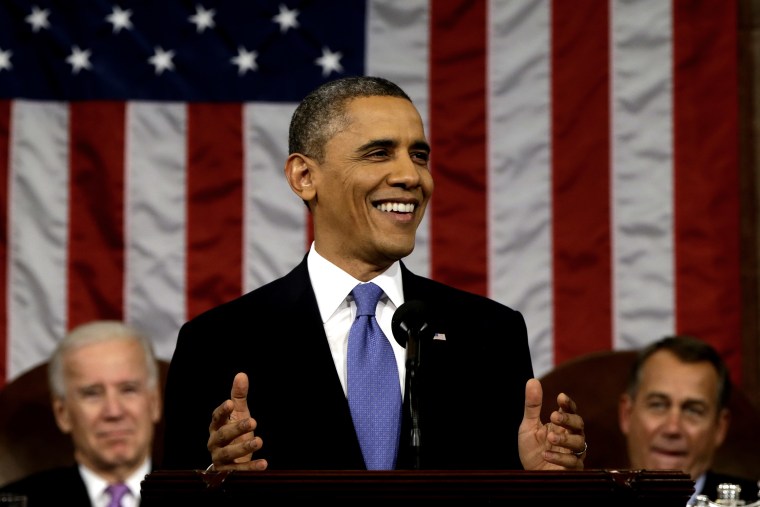We're still a year and a half from the next Election Day, but there's already quite a bit of chatter of "legacies" in the air. Politico, for example, yesterday said House Speaker John Boehner (R-Ohio) "came to power envisioning shrinking government and slashing budgets, but foreign policy has emerged as a central element of his legacy."
A day later, I'm still not sure what Politico was talking about. Boehner has never shown particular interest in, or demonstrated any knowledge of, international affairs, and after more than four years with the Speaker's gavel, the Ohio Republican has not contributed to American foreign policy in any constructive way. If this is a "central element" of Boehner's legacy, the Speaker's in big trouble.
Of course, after a preliminary international agreement was reached over Iran's nuclear program, interest quickly shifted to the White House. The New York Times quoted Cliff Kupchan, described as an Iran specialist at a consulting firm, saying this about President Obama: "Right now, he has no foreign policy legacy. He's got a list of foreign policy failures. A deal with Iran and the ensuing transformation of politics in the Middle East would provide one of the more robust foreign policy legacies of any recent presidencies."
The second half of the sentiment is more compelling than the first. A sweeping international nuclear agreement with Iran would, to be sure, represent one of the more transformative foreign policy victories in a generation. But the notion that President Obama "has no foreign policy legacy" is highly dubious. Ryan Grim noted some of the notable recent breakthroughs:
The deal with Iran comes two months after Obama announced a warming of relations with Cuba, another longtime U.S. foe. [...] In November, Obama, during a trip to China, surprised observers with a bilateral climate change deal that puts China on a path to reduced emissions. American opponents of acting to stave off climate change have long used China as a reason not to act, arguing that whatever the U.S. does will be overshadowed by the coal-heavy nation.
Breakthroughs on U.S. policy towards Iran and Cuba are themselves future entries in history books, and the progress on climate talks with China have the potential to be literally life-saving.
But as Obama's foreign policy legacy takes shape, the list of successes continues.
The president has responded effectively to Putin's antics, helping cripple Russia's economy and isolate the autocratic leader. Obama has wound down both of the Bush/Cheney wars. This White House is also no doubt proud of its counter-terrorism accomplishments, including the strike against Osama bin Laden, its New START treaty, it's improved ties with India, it's improved ties with Latin American, it's progress on loose nuclear materials, and the degree to which Obama has improved the nation's global standing in the wake of his predecessor's tenure.
Whether one's satisfied with the accomplishments or not, this is the stuff of an impressive presidential legacy.
This is not to say there aren't misses alongside the hits; no administration has ever been able to tout a perfect record on international affairs. The Obama administration had high hopes for its policy towards Yemen, for example, and the country is now deteriorating towards failed-state status.
The administration helped topple Gadhafi, but conditions in Libya are dreadful. The administration has relied heavily on a drone campaign against suspected terrorist targets in Pakistan and elsewhere, often with counter-productive consequences.
But on balance, I suspect officials in the West Wing are looking back at the last six years with quite a bit of pride. "He has no foreign policy legacy"? Recent history suggests otherwise.
